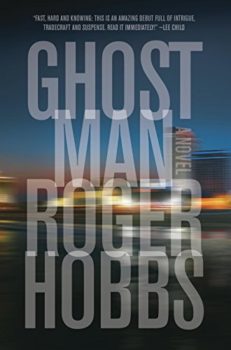
When you wander through your local bookstore, or a drugstore or Wal-Mart, you’ll probably pass by a rack of paperback books with lurid covers that are usually labeled as thrillers. Pick up one of these books, and what are you likely to find? A superhero cop, spy, or private investigator — one who combines the strength of an Olympic gold medalist with an IQ of 165 and the ability to outfight the biggest, baddest bad guy ever to come down the pike. Apparently, a former British naval intelligence officer named Ian Fleming started this unfortunate tradition half a century ago. Now, it seems, we can’t shake it. This is the trouble with thrillers. Most of them, anyway.
Estimated reading time: 3 minutes
Here, then, comes young Roger Hobbs with a new twist on the thriller. Hobbs’ protagonist — his hero, it would seem — is not a superhero cop, spy, or private investigator. He is, in fact, an unrepentant, lifelong armed robber and murderer who combines the strength of an Olympic gold medalist with an IQ of 165 and the ability to outfight the biggest, baddest bad guy ever to come down the pike. Oh, but this guy never murders anyone unless it’s absolutely necessary! And, in the course of Roger Hobbs’ debut novel, Ghostman, he only kills maybe six or eight guys. (He doesn’t like to murder women, we’re told. Unless it’s absolutely necessary.)
Ghostman by Roger Hobbs ★★☆☆☆
The title character is the guy on a team of bankrobbers who makes things disappear, including himself. He seamlessly shifts from one disguise to another, adopting a wide variety of names but never revealing his own. By applying makeup, coloring his hair, changing his voice and his gait, he manages to put on 20 years in an hour — and we’re expected to believe that he remains undetected even by someone sitting within two feet of him. The few people who really know him call him Ghostman. He’s rootless as well as ruthless, and he could turn up anywhere in the world there’s a huge bank job waiting.
A masterful job of research
Blood, guts, and impossibilities aside, there are a couple of things about Hobbs’ writing that are laudable. His prose flows smoothly, uninterrupted by lyrical turns of phrase to hint that he’s really a “serious” writer. And he’s clearly done a masterful job of research into the procedural niceties and the argot of bank robbery as well as the workings of Atlantic City casinos and other topics closely related to his story. And, by the way, when I say Hobbs is young, I mean young: having graduated in 2011 from Reed College, he appears to be in his early twenties.
What’s missing from Ghostman and other novels of the same ilk is soul. Though Hobbs appends an “autobiography” of his killer-hero to illustrate his motivation for doing what he does, there’s not so much as a shred of evidence that the man — or, for that matter, Roger Hobbs — ever considers the needs, the feelings, or the value of other people. As I said, no soul.
Why do these nihilistic books get written so often, let alone published? And why do we read them? (Mea culpa, mea maxima culpa!) Is there some bloodthirsty streak in our national character that impels us to make heroes out of people who seem to kill for a living?
For related reading
You might also enjoy my posts:
- Top 10 mystery and thriller series
- 20 excellent standalone mysteries and thrillers
- 30 outstanding detective series from around the world
- Top 20 suspenseful detective novels
- Top 10 historical mysteries and thrillers
And you can always find my most popular reviews, and the most recent ones, on the Home Page.

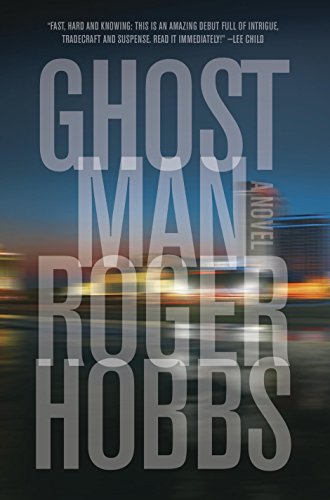
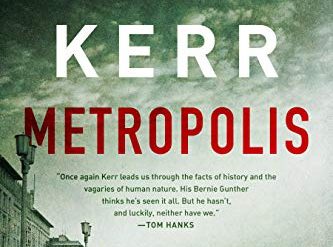
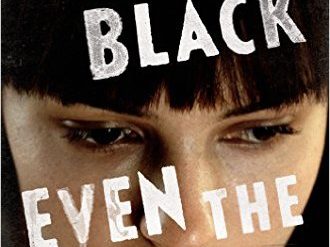
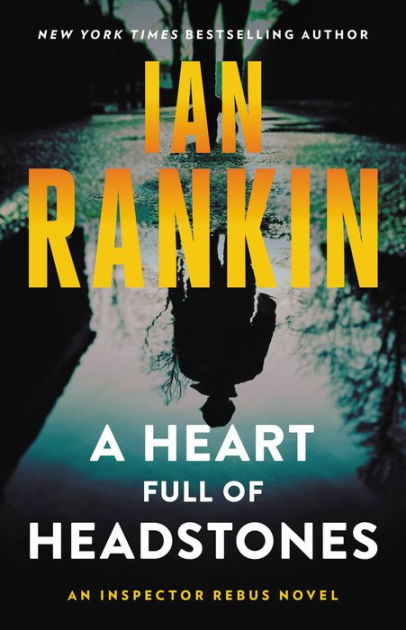






















Mal, Thanks for this on-target critique of the genre and of our reading of it. I’ve cut Patricia Cornwell totally off my list, and a couple others whose villains always turn up torturing women, but every once in a while I stumble on one of other thrillers, finish the book and berate myself for letting the sludge in my brain. Looking forward to your book, Sue